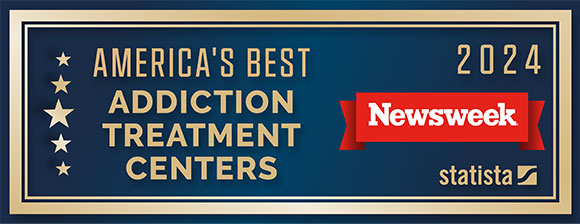Meth Addiction Treatment in Los Angeles
Oro House Meth Addiction Treatment in Los Angeles, California uses evidence-based therapies for successful recovery from methamphetamine and crystal meth dependence.
Oro House Meth Addiction Treatment in Los Angeles, California uses evidence-based therapies for successful recovery from methamphetamine and crystal meth dependence.
Addiction is simple, at least on one level. Most people with an addiction issue use their substance of choice because they like how it makes them feel.
From this perspective, methamphetamine, also known as crystal meth, is a prime candidate for abuse. The drug is powerful and pleasurable to users, making it difficult to quit. It’s so difficult to quit that 61% of meth users relapse within a year of finishing substance abuse treatment.
That number is alarming, but there is hope for meth addicts. Methamphetamine treatment is not simple, but it can be effective.
The one-size-fits-all model does not make for a successful meth treatment plan. Fortunately, we have non 12 step rehab program at Oro House that works well for treating meth addiction.

The picture we’ve painted so far is an intense one, and that’s for good reason. Crystal meth is a killer, and if you’re part of a meth addict’s support system, it’s important you recognize the warning signs of their addiction. You can’t force help on them, but you can be there when they need it.
There are plenty of warning signs when it comes to meth addiction, and they take place on a variety of different levels. Meth addicts experience changes in mood, behavior, psychology, and in their physical state.
Here are a few of the meth addiction symptoms in each of these categories.
One of these things is not like the others. That’s because these symptoms occur at different points in an addict’s cycle of misuse.
Users will experience euphoria when they are on the drug, but depression and anxiety when they cannot get their fix.
Obviously, these behaviors can be symptoms of many different problems, and they represent multiple types of addictions.
But if someone you care about displays several of these signs, it can be a red flag for meth addiction.
There are other physical symptoms that accompany meth addiction, but many of them are internal. It can be difficult to get an addict to speak to you about their patterns of substance abuse. These symptoms are the ones that are observable on the outside.
Meth is one of the most damaging drugs to a person’s body. This makes recognizing the need for treatment a little easier to identify.
There is some overlap with these behavioral symptoms. The psychological effects of meth addiction often contribute to the addict’s violent and erratic demeanor.

Because methamphetamine provides users with such an intense, pleasurable high, it’s rare that an addict will seek treatment on their own. This makes the people in their support system all the more important.
It is nearly impossible to rationalize with a person addicted to meth, and if you care for a loved one under these circumstances, understand you are both in for a long haul.
While it may be tempting to plan an intervention, there is little data available on the effectiveness of this tactic. They may be most receptive when they are in legal trouble and have to choose between court-ordered treatment or jail time.
Court-ordered treatment is not always a last-ditch effort. Many people addicted to meth find this to be the push they need to get help.
Unfortunately, many times they choose a treatment center that is based most only group support meetings and not evidence-based therapies with a proven track record for successful recovery.
As discussed earlier, the one-size-fits-all model is not a good approach for successfully treating addiction, and that is especially true for meth addiction treatment.
Methamphetamine is a highly addictive substance that is often used in conjunction with other substances, and can be complicated by other behavioral or mental health issues.
Because of this, specialized treatment is necessary by professionals with a history of working with methamphetamine addiction. Below are some recommended options.
Before beginning an inpatient residential program for meth addiction treatment, a thorough assessment will be performed at the time of intake to outline a recovery plan to be followed during the residential stay.
Drug detox is a cornerstone of inpatient addiction treatment and the first step toward sobriety. During detox, a patient is safely and comfortably weaned off the substance they misuse under the supervision of trained professionals.
The detoxification process ensures each person is supervised during the withdrawal period and they remain safe and comfortable until the process has been fully completed.
After detox is finished, the formal addiction treatment program begins, lasting from 30 to 90 days under most circumstances.
During this period of recovery, a daily routine of individual and group therapy will be led by trained therapists and addiction specialists to follow the treatment plan outlined in the assessment.
The most appropriate therapies for successful treatment will be included in the plan.
Outpatient Treatment is a less intensive option than an inpatient residential program. Depending on the level of help a person needs, and the structure in their life, it can be an effective form of recovery.
An outpatient treatment program acts as a continuation of the work a person started in the residential setting, except they either live at their own home or a sober living facility while attending outpatient sessions during the week.
Many times they work with the same therapists they had during inpatient treatment.

Since there are not yet proven pharmaceutical cures for methamphetamine addiction, therapy is one of the most prescribed treatments for those looking to recover.
The therapies that follow can all form part of a holistic treatment program used in combination with other methods. They form the foundational pieces of inpatient or outpatient rehab programs.
Cognitive Behavioral Therapy, or CBT, is a popular method of therapy for addiction and other types of mental health issues like depression. It is pragmatic and focused on dealing with the triggers of addiction.
CBT focuses on the interaction of a person’s thoughts, feelings, and behaviors to improve personal coping strategies and overcome current problems of addiction.
Motivational Enhancement Therapy (MET) is a distinct treatment therapy modality, like CBT.
MET is a treatment approach that helps those who feel they don’t have a problem become motivated to seek help and want to participate and engage in recovery.
Individual therapy involves one-on-one sessions with a therapist trained in addiction treatment to help get to the root of why a person is using drugs like meth, and form strategies that will work best for them.
When an addict can share their feelings and see them reflected in others who share their struggles, it enhances their recovery. This is one of the biggest benefits of using group therapy during treatment and relying on support groups after completing a residential program.
In family therapy, an addict will see a therapist along with their family members in a joint session. “Family” in this case can have a broad definition. It may mean the addict’s parents, partner, or children.
Methamphetamine addiction can be difficult to overcome because the drug is so addictive and it can make treatment seem like an impossible task.
At Oro House, we offer meth addiction treatment as well as other forms of drug use.
As mention earlier, the first step for treating methamphetamine addiction is detox. At Oro House, we provide a comfortable and safe, medically supervised detox program.
Methamphetamine detox often takes approximately a week to complete, but some symptoms may last longer, so it’s important to detox at the same place where rehabilitation occurs.
After detox, our 30 to 90-day residential treatment program has shown to be the most effective way to treat addiction to methamphetamines.
We recognize the importance of combining supervised detox with addiction treatment in a comprehensive program for our clients to have the most success in their recovery.
Our program provides compassionate care, combined with evidence-based treatment therapies, starting with an assessment and continuing all the way through each level of care, including aftercare and even sober living.